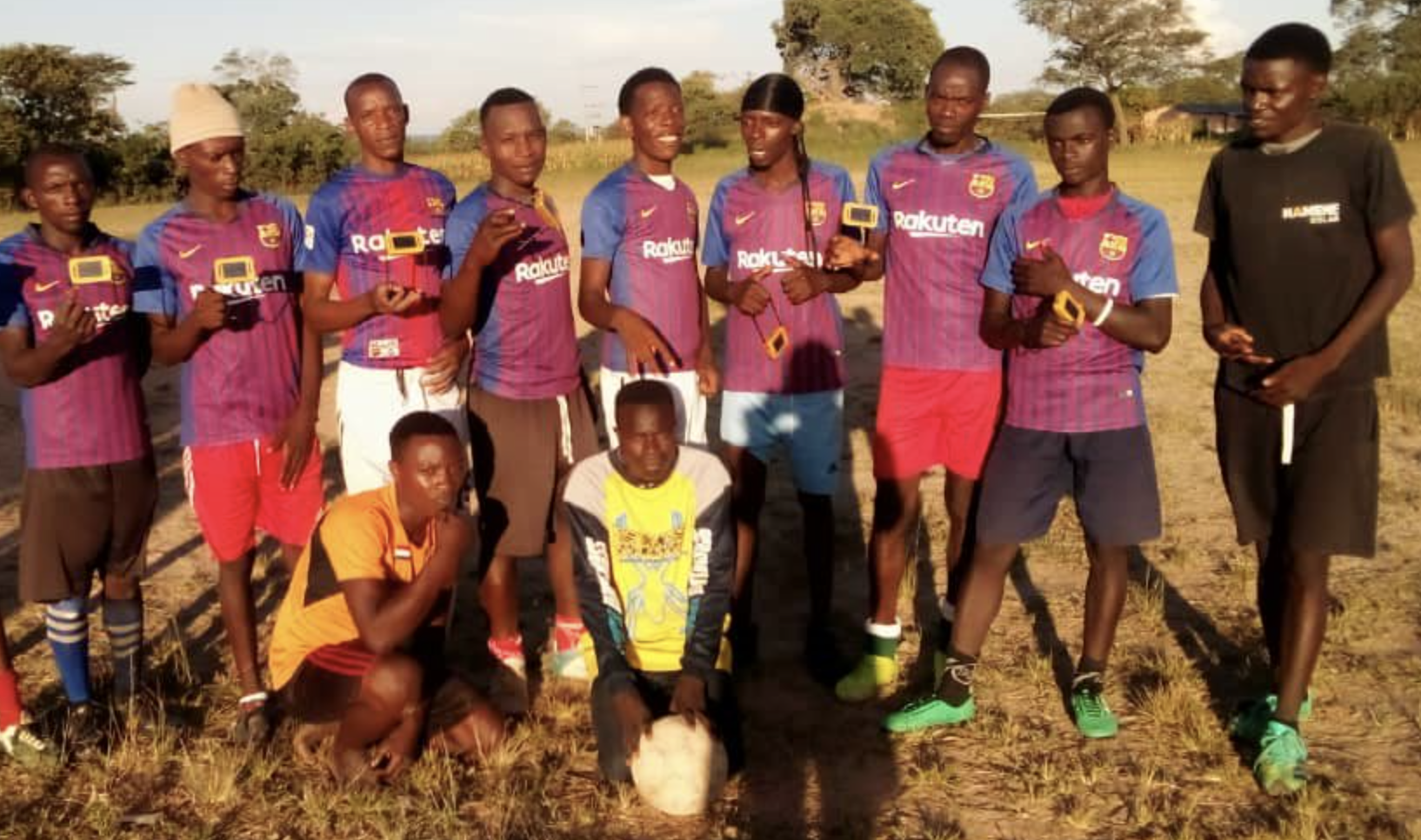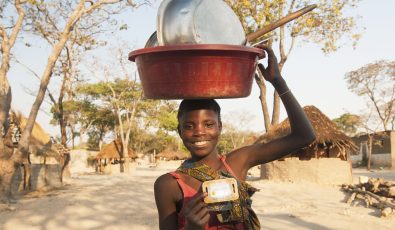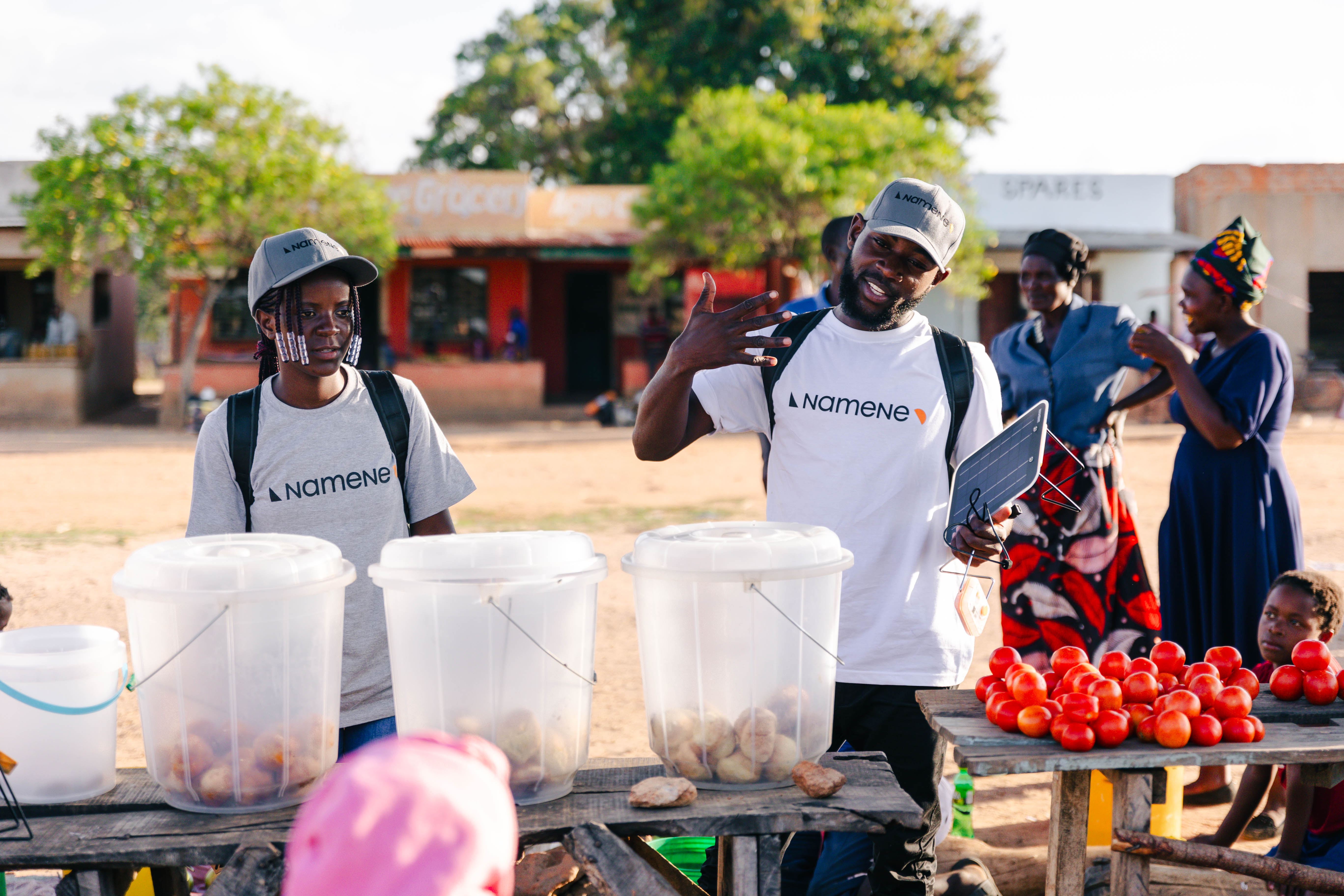Changing lives one solar light at a time: Pride’s story
At Namene, we see first-hand the power of clean technology in transforming the lives and livelihoods of people living in off-grid communities. Among them is 24-year-old Pride Siamenenga, from Zambia.
Like many in rural Africa, Pride grew up without electricity, and for years candles were the only source of light for his family. Then Namene’s solar lights transformed their lives, in more ways than one.
The many costs of energy poverty
In rural Zambia, around 85% of the population have no access to electricity For households in those remote communities, the only options are expensive and poor-quality sources of light like kerosene lamps and candles.
These are also toxic, and in some cases deadly, as Pride knows all too well.
“When I was in grade four, I had best friends – they were twins. Unfortunately, one evening they slept while the candle was still alight, their house caught fire and they lost their lives.”
The threat of house fires is a constant worry for families without electricity, and so is the ongoing cost of buying candles or fuel for kerosene lamps, which often traps them in a cycle of energy poverty.
“Here in Zambia, the price of a candle is equivalent to the price of 1 kg of sugar,” says Pride. “One candle is more expensive than something that is able to make a meal.”
Families living below the international poverty line – on less that $2.15 a day – often must make recurring payments for expensive fossil fuels. For these families, paying for education is also a struggle. When Pride and his three younger siblings lost their father at a young age the family could no longer afford to send them to school.
Brightening up lives through solar power
Energy poverty has many costs, but this also means that something as small and simple as a portable Namene solar light can make a huge and immediate difference to people’s lives. In Pride’s case, this is doubly true.
Shortly after buying a Namene solar light, Pride joined the Namene team as a sales agent and began brightening up the homes of families and communities around him. And with this new income, it wasn’t long before his own home life was transformed.
“After I was hired, I was able to pay for my younger siblings’ school fees and my mum was able to purchase three lights for my little brothers. When we started using the Namene lights I saw improvements in my brother, who has just graduated.”
Sharing his own experience and the benefits of his solar lights helped Pride in his work as a sales agent and he quickly became one of our best-performing ‘Super Agents’ in Zambia.
Pride remembers his first customer, one of his neighbours who until then had had no alternative but to use open-flame grass fires inside her house to cook after dark, once causing a kitchen fire.
“She was the first one to buy the lights for her home,” Pride recalls. “Since then, she has been a happy person and she no longer has to worry. She hangs it in the kitchen and it’s bright.”
Since then, Pride has introduced solar lights to other members of his community, including his football team who each purchased a light.

Pride (standing far right) with his football team and their solar lights.
Life-changing power for millions
Like all Namene products, our solar lights are designed to be sustainable and affordable for everyone, no matter where they live.
When asked what he likes best about his Namene light, Pride says: “It is very accessible, very affordable and it has improved my life so much. My family is now able to eat healthy meals. I appreciate Namene because now we are living a better life, and I can see that my family is happy.”
Pride believes solar lights can empower other Zambian families and communities like his.
“Zambia is just able to provide electricity for people in urban areas but the rural people of Zambia are still struggling. So if Namene are to provide everyone with such an opportunity, I am sure it can really impact Zambians.”
Read more about Namene’s climate project in Zambia
Related Stories

Drive Sustainable Change with Namene Carbon Credits
As the urgency of climate change grows, businesses can take responsibility for their emissions and meet sustainability goals with Namene's Carbon Credits.
Read More
Empower women to power Africa: women driving the energy transition
At Namene want to honour and champion the essential role women play by connecting their communities to energy access, becoming solar entrepreneurs and leading the charge in energy companies.
Read More
How Namene Does things Differently
Zambia Country Director, Chanda Mulenga shares lessons and strategies that have enabled our success deploying solar lights to some of the most remote communities.
Read More